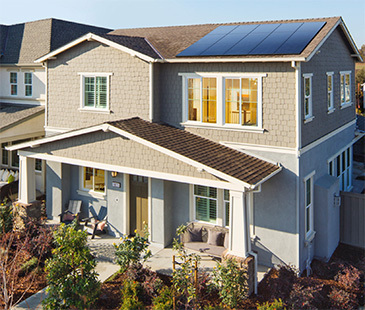
If you’re like most consumers, reading your utility bill isn’t at the top of your bucket list. In fact, it might rank closer to going to the dentist. But there is a lot to learn from your utility bill if you read the fine print.
The good news is, when you go solar, the solar energy part of your bill is simple: The amount of clean energy you generate through your system directly offsets your usage costs on your bill. But there are some fees that net energy metering cannot be applied to, and others that will be charged depending on the circumstance.
While each utility has its own policies and may describe their fees in a slightly different way, here are some of the more common fees that you may see on your bill:
Non-bypassable charges: Whether or not you have solar power, you may be charged an access charge for the benefit of using the grid. This is to help maintain the power grid and ensure reliable electricity for everyone.
Public purpose programs: Some states have mandated low-income programs. Public purpose fees may be charged to those who do not qualify for low-income assistance to help cover those who do.
Community benefit programs: Some utilities charge fees to help fund services that benefit everyone in the community, such as street lighting or energy efficiency programs.
Power Charge Indifference Adjustments (PCIA): This is the cost we pay for the right to buy electricity from alternative sources such as solar farms, wind turbines or hydro-electric plants. Regardless of whether you have solar panels on your roof, you may be required to pay this fee.
Competition Transition Charges: In competitive utility markets (i.e., those where you can choose your electricity provider), you may be charged a fee for power that crosses your utility’s competitor’s power lines. Think of it like paying a toll as you would on a toll road.
Local charges to cover special circumstances: In some parts of California, for example, there is a Wildfire Hardening Charge that recovers costs related to the prevention of catastrophic wildfires caused by failed utility equipment.
While that’s not all you may see on your bill, chances are if there’s a fee you don’t understand, it fits in one of the above categories.
Most of these fees will be paid by solar energy and non-solar customers alike, so you won’t get penalized by going solar. But it’s always good to know what you’re paying for, and why.

